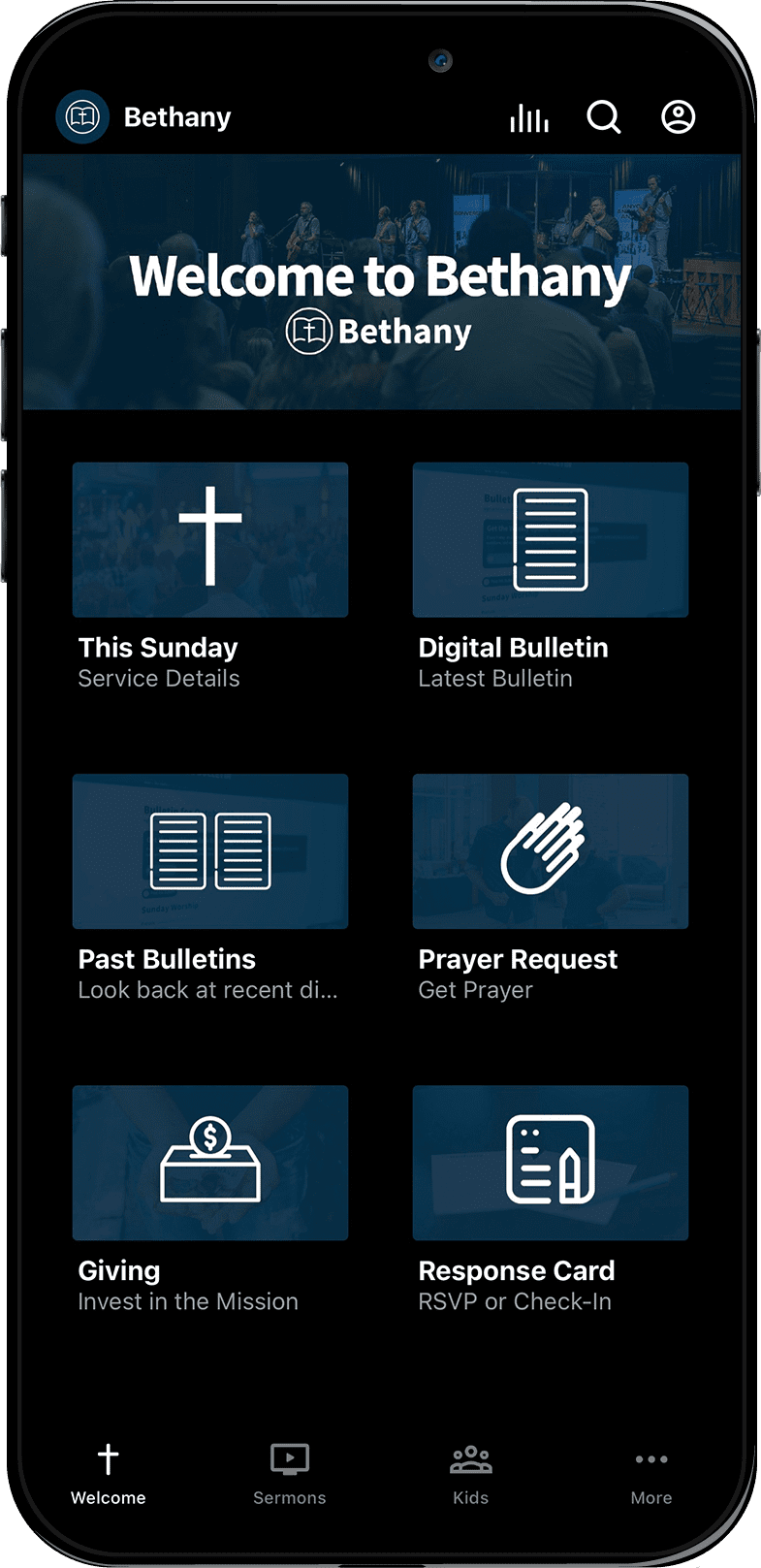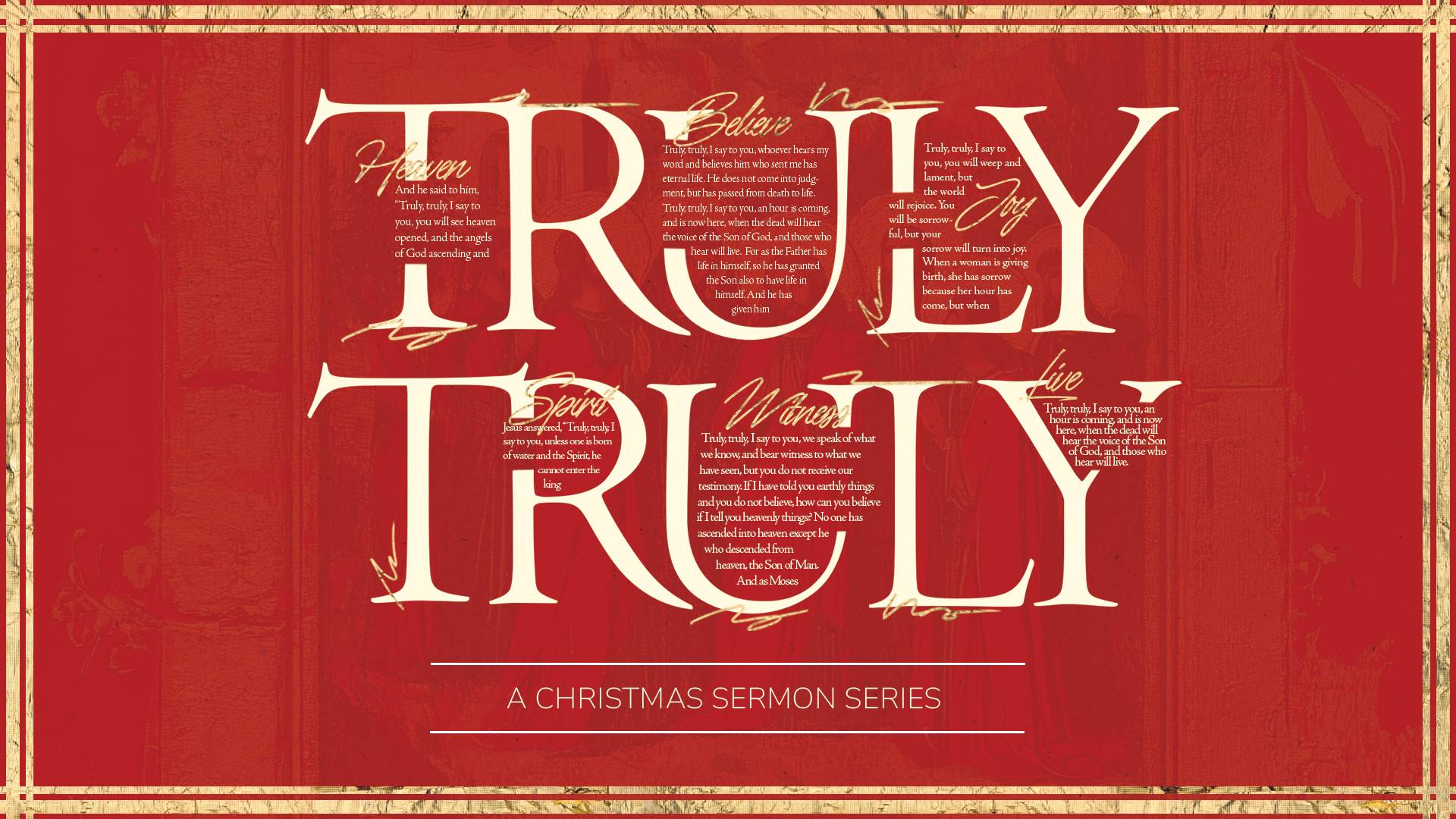Teaching the Fundamentals
Proverbs 3:5-8 (ESV)
May 15, 2022
Dr. Ritch Boerckel
We are in the middle of a three week series on parenting. But we trust that if you’re not a parent, that these messages will have great impact upon your life as well. Really, it’s a message about how to influence others for good for Christ and unto godliness. How can we live in a way that whether it’s our friendships, our spouses, whether it’s our neighbors, our fellow brothers and sisters here at Bethany, whether it’s our grandkids, how can we influence others for Christ? Yet our focus is specifically on parenting. So we’re going to look at Proverbs 3. This is a chapter that we have chosen to kind of glean some of God’s principles about parenting from this specific chapter. We’re going to be in verses 5-8 this morning. So if you have your Bibles, turn there. We come to perhaps the most well-known verses in all of Proverbs.
5 Trust in the LORD with all your heart, and do not lean on your own understanding. 6 In all your ways acknowledge him, and he will make straight your paths. 7 Be not wise in your own eyes; fear the LORD, and turn away from evil. 8 It will be healing to your flesh and refreshment to your bones.
May God encourage us through His Word today!
Parents, imagine for a moment that you have one hour where your children give you their complete and undivided attention. For that one hour, their little eyes attend to every facial expression. Their little ears will capture every word you speak. Their little hearts will embrace with joy every part of your message. Imagine that in that one hour, whatever you tell them they will learn. They will comprehend it completely and they will never ever forget it for the rest of their lives. The lessons learned in this hour that you offer them will be the first thoughts on their hearts when they rise up in the morning and they will be the last thoughts on their hearts as they lay down to bed at night. Imagine that everything that you would say in that one hour would not only be comprehended and understood, but also would be applied consistently.
So let me ask you first, how much would you pay for such an hour? (Laughter!) Secondly, what would you teach your children if you had such an hour as that? Well, some might teach math or science. Some might teach music or art. Some might teach philosophy or morality. Some might teach some important life skill. What would you teach your children if you had one such amazing hour as I just described?
Last week we began our study on parenting from Proverbs 3. We learned four foundations that are necessary for us to build into our own lives as parents in order for us to impart wisdom to children. We learned first that we needed a life of personal worship. We need a real relationship with the living God. We needed secondly, relational conversations where we have a connection, an affection and a communication between us and our kids. We also learned that we need biblical convictions. The convictions we base our lives upon would flow from Scripture and not just flow from our own thinking. Finally, we learned we needed a God-centered vision. It’s that we would have a view of our children’s lives that would match with God’s view of what the future should be and what a future would bring blessing upon their lives. So we need a God-centered vision for the impartation of wisdom.
This week, as we consider those foundations, we now consider fundamental truths that parents must center upon if we are to impart wisdom. What is the basic curriculum that God would have us to teach our children as He blesses us with this amazing gift of children in our home? What exactly do we teach if we have one hour in which they would completely comprehend, understand, accept and apply? I believe Proverbs 3:5-6 gives us an amazing answer to that question with great clarity and with great precision. Proverbs 3:5-6 are the two verses we’re going to really focus on this morning. They simply read
5 Trust in the LORD with all your heart, and do not lean on your own understanding. 6 In all your ways acknowledge him, and he will make straight your paths.
What are the fundamentals that God would have us to teach our children? If they don’t learn anything else in the whole course of their time in our homes, what lessons do we want to bring to them because we believe that God has established them as the basics, sort of like the three R’s of life? If you’re taking notes, the outline in your bulletin is not going to be correct. We’re going to just really walk through this passage.
Fundamental #1: Trust in the Lord with all your heart.
This fundamental is so central to all of life that we wouldn’t be exaggerating to say that every story written in God’s Word is a story that teaches us in some way to trust in the Lord. Think with me over a few of them from the very beginning. The story of Adam and Eve reminds us that disaster flows from a refusal to trust in God. The story of Cain and Abel teaches us that God’s invitation to draw near to Him in worship hinges upon our trust in the Lord. The story of Noah reminds us that trusting God seems ridiculous to this present world, but is salvation to those who trust Him. The story of Abraham teaches us that God credits righteousness on the basis of our trust in Him. The story of Joseph gives us confidence to trust God even when painful injustice presses like knives into our hearts in this present world. Every story written in God’s Word points to this one basic theme. The writer of Hebrews says it really succinctly. He says without trust in the Lord,
Hebrews 11:6 And without faith it is impossible to please him,
Every eternal blessing gained is gained through trust in the Lord and every eternal loss comes because of a refusal to trust in the Lord. The application we would make in parenting is that if we wish to help our sons and daughters to live an eternally joyful life, we will make it our daily passion to teach them at the most fundamental basic level to live by faith in Christ Jesus.
So we ask the question, what does it mean to trust in the Lord with all our heart? This word “trust” has two basic ideas. First is a willing submission. We trust the Lord by yielding our will over to His. But the second is a happy confidence. We trust the Lord by joyfully believing that He will do good for us. He is a good God and when we align our life to Him, goodness flows from Him.
The Hebrew word “trust” literally means to lie helpless or to lie facedown, prostrate. We think of a defeated soldier who is surrendering to the victorious army. He’s lying facedown. He’s saying, “I’m surrendering. I’m yielding myself over.” Or we think of a humble servant waiting for instructions from his king. He’s lying prostrate. “Whatever you say, whatever you tell me to do, that’s what I’m willing to do.” We cannot trust in a God to whom we refuse to surrender our lives. It’s impossible. So trust, at its basic sense, is a yieldedness. So the person who says, “I’m the master of my fate. I bow to no one,” is a man who simply cannot trust in the Lord. We must yield over self-determination and self-rule if we are to trust in the Lord.
Yet, trust is more than surrender. Trust is also a happy confidence. Trust is the conviction that the Lord is good and that the Lord loves us and that He has our best in view. Trust means that we believe that our lives are far better in the hands of the Lord than they are in our own hands. Jesus used children as an example to teach us what it means to have a happy confidence. He used them to teach us what it means to trust. In Matthew 18 Jesus
Matthew 18:2 And calling to him a child, he put him in the midst of them
He put him in the midst of His disciples. He wants to teach them what it means to trust in the Lord. It’s a basic message Jesus teaches the disciples.
Matthew 18:3-4 and said, “Truly, I say to you, unless you turn and become like children, you will never enter the kingdom of heaven. Whoever humbles himself like this child is the greatest in the kingdom of heaven.
Trust is one of the most basic elements of little ones. From the time that they are little babies and then toddlers they trust their parents to provide them everything that they need. They trust their parents to protect them, to help them, to look after them. Yet even for children, as they grow older, they begin to trust themselves and trust becomes a challenge.
Kimberly and I had this amazing opportunity to spend some time on vacation with our three adult sons and their families. We have four grandchildren. We have a four year old grandson, a two year old grandson, and then almost a two year old granddaughter, and then one below one. So we had this time of having a vacation together. It was just a wonderful time because our family doesn’t get together very often. It’s been almost a year and a half that we had such pleasure.
At the place we were staying, there was a swimming pool. My wife had been early in her life, a swim instructor. So she was talking to them about learning how to swim. They had never been in a deep pool before. They had only been in little kiddie pools. So first when we approached the big pool, they were afraid of it. They didn’t want to go in. So we said, let’s first sit on the side of the pool. We got them sitting and splashing a little bit with their feet. Ultimately though, we wanted them to come to us, to jump into our arms and we would take them to a part of the pool that if we weren’t with them, they would sink right down to the bottom. It was way, way, way over their head. Again, initially they didn’t want to do that. They were frightened. They were scared of that experience.
They had two questions. First, will grandma and grandpa keep me from drowning? Then secondly they had to overcome the question, will this be a good experience? Even if they were assured that they might not drown, they still might wonder, “I don’t even know if I want to do this. It’s a little scary. I don’t know if it’s that fun.” Well, gradually, they would thrust themselves into our arms and then we would carry them through the pool and they had the greatest of times. What fun as they decided to trust us!
Now, I couldn’t get my nearly two year old granddaughter to be convinced. She stayed by the side of the pool and didn’t even want to put her feet in the pool. So we sat down. We had a good time in the pool chair. Trust simply says I’m going to give myself to this person. Do you know what? If the person that you’re trusting, if their grandma and grandpa failed them, then it would be disaster. They gave themselves completely to us and as they gave themselves completely to us, they had such joy and happiness and they wanted to go again and again and again and again because of trust. Trust was essential.
That’s what it means to trust the Lord. Life takes us into the deep end of the pool often, where it’s way, way, way over our head. Are we going to trust Him? It’s just sort of the fundamental lesson that parents have to teach their children. We ask, well why? Why should we trust in the Lord? It’s because of who He is. We trust in the Lord because the Lord is trustworthy. He never fails us. He will always prevail. As we think of the attributes of God, there are three attributes that seem to lock in trust for us. The first attribute of God is that He is all-wise. Second is that He is all-loving. Third is that He is all-powerful. These three attributes give us a foundation upon which we can place our complete trust in the Lord for every part of our lives. The Lord is all-wise. Scripture says
Romans 11:33 Oh, the depth of the riches and wisdom and knowledge of God! How unsearchable are his judgments and how inscrutable his ways!
We have confidence, in other words, that the Lord knows what is best in life. He knows the way to life. The path that He lays out toward life never leads us astray. Not ever, once! He knows the most perfect goals or ends to which we should move that would lead us to the greatest joy and happiness. He designs the most perfect means for us to get on that path and to reach those ultimate goals. Do you know how wise the Lord is and how good His ways are? This is such an essential question for us as parents first and then to teach our children how wise He is so that we can trust Him. But He is also all-loving.
Romans 8:35 Who shall separate us from the love of Christ? Shall tribulation, or distress, or persecution, or famine, or nakedness, or danger, or sword?
Romans 8:38-39 For I am sure that neither death nor life, nor angels nor rulers, nor things present nor things to come, nor powers, nor height nor depth, nor anything else in all creation, will be able to separate us from the love of God in Christ Jesus our Lord.
His love is infinite and we can trust Him because we have confidence that He is for us. He desires the most joyful and most wonderful outcomes for our lives. He is not trying to make our lives diminished. He is trying to make our lives full. Do you know how much the Lord loves you? If you know how much He loves you, it is there that we can begin to place our trust in one who has such care over our lives and such loving concern. But He is also all-powerful.
Jeremiah 32:17 ‘Ah, Lord GOD! It is you who have made the heavens and the earth by your great power and by your outstretched arm! Nothing is too hard for you.
We have confidence that nothing stands in the way of the Lord bringing blessing to His people. Nothing! No enemy can take away the good that God offers us. In other words, the pool is never too deep. God is able to bring us through every storm, through every dark valley. When God charts a path to bring us to this perfect outcome that He wisely has set before us and He lovingly calls us toward, God’s power assures that the path absolutely will lead to the place that God designs every single time. Do you know that nothing is too hard for your God?
Beloved, trusting in the Lord is understanding who the Lord is and on the basis of the knowledge of that absolute truth, trusting, yielding, having confidence that He is who He is. He is a God who loves us purely. He is a God who understands everything about our lives perfectly. He is a God who is able to accomplish everything He decides to do completely. This is sort of a fundamental one to teach our children. It’s reasonable to trust in God when we know who He is. Our trust in the Lord rests in knowing who the Lord is.
The application to parents is if you wish to help your sons and daughters live an eternally joyful life, make it your daily passion to teach them to live by faith. Teach them to trust in the Lord. How do we do that? Well, tell stories of your own personal trust in the Lord. Talk with your children of times when you faced some really scary moments or some really sad times or some really hard decisions that were in front of you. Share with them that you sought the Lord and you trusted in Him and how God provided.
Or share stories of your failures. The stories in the Bible are filled with failures as well as successes. Both teach us how essential it is to trust in the Lord. Our failures teach us, look what happens when we don’t trust in the Lord. Do you have a story, parents, that you could share with your children of your life this afternoon about what you learned about the Lord and trusting Him? Share that story. Your children love to hear stories. They love to hear stories about when you were little kids. They love to hear stories about before they were born, when you were first married. They love to hear stories of your life. Tell them stories of how you’ve seen God to be reliable and worthy of trust.
Secondly, open God’s Word daily with your children. Faith comes by hearing, and hearing through the Word of Christ. So look for ways to teach your children about God’s wisdom and about God’s love, about God’s power. Teach your children who God is. Not just what God says and what God commands, but who God is. It’s on the basis of who He is that we trust and we obey. Show through the Scriptures that God is trustworthy.
Then third, look for practical teachable moments to point your kids to their need for Christ. Look for the times when your children are very sad about something, then point them to Christ. Look for times when your children are suffering, when they’re hurting whether it’s because of some physical ailment or whether it’s because of something emotionally. But look for times when they are suffering and then point them to Christ. Look for times when your children are afraid. Oftentimes our children are afraid. This is a scary world admittedly. Point them to Christ. Talk to them about how the Lord makes a difference in those particular moments. Apply this very specifically. A Christianity that is not specific to life is powerless to change us. Oftentimes we take those moments and we sort of do more human things with them and only human things. We try to console them with human words or we try to help their suffering with human solutions or we try to overcome their fears by human distractions. But these are moments to teach them how to trust in the Lord, to point them to Christ.
Finally, make your child’s spiritual life your first priority. Let them know through your words and your attitudes that this is what is the most important to you because it’s really the most important to them. It’s the most important to everyone. If we miss Christ, we miss spiritual life. We have missed everything. If we teach our children to be successful in their school life, their social life, their athletic life and every other part of their life but they’re without God, we’ve done nothing that is going to benefit them a hundred years from now. One hundred years from now, they won’t be on this plain. What’s going to be of their lives? What have we built into them so that their lives will be joyful not just today but forever and ever? Make sure they know the Gospel. Make sure they know
John 3:16 “For God so loved the world, that he gave his only Son, that whoever believes in him should not perish but have eternal life.
This is the Gospel. The saved life commences with trusting in God and the saved life then continues by trusting in God. So the first fundamental is trust in the Lord.
Fundamental #2: Do not lean on your own understanding.
Picture an injured man with a broken leg. He just broke it and he gets some crutches to help him walk. So as he walks, he puts his whole weight on those crutches, but there is a problem. The crutches are made of Papier-mâché. As he puts his whole weight on those crutches, he leans on those crutches and what happens? They fold and he crashes and he hurts himself worse. Now he has a broken hip. Our own understanding is nothing more than Papier-mâché crutches. It’s foolish to lean on Papier-mâché, yet that’s what we often do through life. We sort of forget our need for God. We sort of forget His sufficiency and we try to find our own solutions, our own way forward.
Trusting in God requires an active decision because leaning on our own understanding is our natural default. It’s where we all begin in the morning. Every morning we say, “Lord, I don’t want to lean on my own understanding. That’s my natural way of life to think about. So if a problem comes up, I immediately apply my own natural understanding to the thing instead of trusting in the Lord and saying, “I’m not going to lean on my own understanding. That’s foolish. I’ll fall and hurt myself worse.”
So when will we be tempted to lean on our own understanding? The answer is every moment of every day. But there are five key circumstances when leaning on our own understanding is very tempting and it leads to disaster. Number one is when we think about our own salvation, when we think about the need of our own soul. You see, our own understanding sees our sin as kind of small and little. It sees our own goodness as sufficient. We begin to lean on ourselves and think “I’m okay with God because I don’t think I’ve done as much wrong as most people and I’ve done a lot of good things.” Secondly, when we have an important decision to make our own understanding makes us confident that we will absolutely know what is best for us. We have experience. Our thinking is sound.
Third, when we suffer a great loss. Our own understanding often in suffering points a finger of blame at God or blame at other people for our pain. It leads to greater disaster. We’re tempted to lean on our own understanding when we experience fear. Our own understanding paralyzes us with the prospect of what can happen next. We just got wound up and we wind ourselves over those anxious thoughts that roll through our soul. Then we become more and more empty of strength and more and more paralyzed by what can happen tomorrow.
Then fifth, we’re tempted to lean on our own understanding when temptation comes our own way. Our own understanding deceives us into thinking first that sin is kind of small and that sin actually might benefit our lives in some vital way. We think that it’s not that big of a deal. So when temptation comes our own way, we often interact with those temptations with our own understanding.
Frank Sinatra, old blue eyes, sang hundreds and hundreds and hundreds of songs. He was a giant of the entertainment world for six decades, selling over 150 million records. If you go to many modern weddings today there is Frank Sinatra’s music being played. 127 songs made the Top Twenty List. 70 of his songs made the Top Ten. Ten of his songs reached the number one song in the nation. But do you know which song sold more than any other song in all Frank Sinatra’s library? My Way.
And now the end is here
And so I face that final curtain
My friend I’ll make it clear
I’ll state my case, of which I’m certain
I’ve lived a life that’s full
I traveled each and every highway
And more, much more
I did it, I did it my way
I can think of no song that is more corrupting to the soul, more defiant of God than that one. Yet here it is. It’s the number one song of a guy who had a whole bunch of number one songs. It’s so popular among the masses and is reveled in by the crowds. “Yes, I want to do it my way, too. Frank did it.”
7 Be not wise in your own eyes;
Don’t do it your way.
Proverbs 26:12 Do you see a man who is wise in his own eyes? There is more hope for a fool than for him.
Jesus constantly uses a little phrase, “He who has ears to hear, let him hear.” He uses that phrase because so many times when we believe that we want to hear from the Lord, we are really seeking affirmation from the Lord. “Here is my way, Lord. Would you bless it? Would you stamp it with your approval? It’s my way and I need your approval for my way.” Jesus says the Lord’s way is not your way. Do you have ears to hear? What the Lord is going to tell you is going to be very different from your way, from your own understanding. God will not impart His wisdom to any person who is confident in their own wisdom.
Here’s the application. Teach your children to doubt themselves. Do you ever hear that in any modern philosophy? No. It’s just the opposite. They say teach your children never to doubt themselves. But teach your children to doubt themselves. Self-doubt is the beginning of faith. If we never have any self-doubt, when would we ever look to the Lord? Children without self-doubt become miserable adults. They become defiant and angry, demanding, manipulating, self-justifying, self-righteous, worldly. Teach your children to doubt themselves.
Second, teach your children to never doubt God’s Word. I love that little children’s song The B-I-B-L-E.
The B-I-B-I-E
Yes that’s the book for me;
I stand alone on the Word of God,
The B-I-B-L-E
Teach them that’s true. If you do that, you’re never going to lack wisdom.
Finally, root all your discipline and instruction in God’s Word. Let children see your original source. In academics, they say you have to show your sources. Let your children see the original source from where you’re getting your instruction, where you’re getting your discipline. Parents, we do not discipline our toddlers when they take another child’s toy because it isn’t nice. We discipline our toddlers when they take another child’s toy because God’s Word says you shall not covet. It says that coveting is corrupting to the soul. Teach them where you get your moral direction. Teach them as they grow, why God says thou shall not covet. Teach them that coveting conflicts with worship and everything good for the soul.
Fundamental #3: Acknowledge God in everything.
5 Trust in the LORD with all your heart, and do not lean on your own understanding. 6 In all your ways acknowledge him,
To acknowledge God means that we are first aware of His presence, then that we affirm His presence. So we’re aware. Okay, God is actually here in the room with me. We go from “Yes, God, here you are. I affirm that you’re here. I welcome you.” Then we take pleasure in His presence. That’s what it means to acknowledge the Lord. So often in our life, we’re not even aware that God is even present with us. Then if we’re aware of that sort of, we don’t affirm it. We don’t take a moment and say, “Welcome, Lord. Speak to me. I want to talk to you.” Then if we’re affirming His presence, it’s important also to take pleasure. “God, I’m so glad you’re present with me. You are the Lord. You’re my Savior, my deliverer. You’re my Shepherd. I need you.” In all your ways acknowledge Him.
What circumstances call us to invite the Lord to the table? You say, “Lord, I’m aware that you’re present and I affirm that. I invite you to the table. I’m super happy that you’re part of my life.” What circumstances call us to invite the Lord to the table? The answer is every one. Big or small, in all your ways acknowledge Him. God’s fingerprints are everywhere in our lives. He wants us to notice Him. That’s what this verse is about. Let’s think of a couple scenarios.
In Scenario 1, you’re walking through the park with your little children and you see some wild flowers. You say, son, daughter, who do you think put such nice clothes on these flowers? Does God care for you more than He cares for these flowers that by tomorrow will die and fade away? Of course He does. You see, that’s much different than saying, “Isn’t that a pretty flower? It’s yellow.” You’re affirming that God is actually here with you. He’s the one that created the flowers.
In Scenario number 2, rain ruins that big birthday picnic that your daughter had planned. She was so excited about this outdoor party. She is so sad, now. Daughter, who sends the rain to water the earth? What do you think God is doing by having it rain when you planned a picnic with your friends? Let’s talk about that.
In Scenario number 3, a teenage boy asks a girl to the prom. And this boy is dreamy! Daughter, what do you think God is saying about this decision in His Word? I know your emotions are all hiked up but what do you think God thinks about that? Let’s talk about that. What does it look like for you to make a decision by faith as you trust in the Lord?
How do we acknowledge God in everything? We do it in two simple ways. We listen to what God says about everything because God has something to say about everything. Then we talk to God before we do anything. So the first application is we acknowledge God by listening to what He says about everything. God has something really important to say about every manner of life and we know that. It’s all right here for us. So how do we make this application to listen to what God has to say?
Well we first as parents have to be people of the Book. If we don’t know the Book, we can’t impart the Book. If we don’t know the Book, we can’t hear God’s voice for ourselves. So how are we going to teach our children to listen to God? Study the Bible for yourselves. But more than study, study it with a heart ready to receive it by faith and then to obey it. The Word is God’s means by which He imparts spiritual life to us.
Then secondly, informally relate God’s Word to every part of life. We just kind of discussed that. Let’s talk about the Scripture when they’re eating supper and when they’re playing and when they’re working on something, schoolwork, when they have friends over and they’re thinking about their friendships, when there is conflict, when there are hardships, when there are hurts, when there are decisions of every kind. Connect your child’s heart and mind and life to Scripture because Scripture has something really helpful to say to them. Acknowledge the Lord in everything. We acknowledge Him by saying, “Lord, you have something to say about this and we want to listen to you.”
Formally then also, teach the Bible to your children. Informally relate God’s Word to every part of life, but formally teach the Bible to your children. We talked about that a bit last week from Deuteronomy chapter 6. God says to the people of Israel,
Deuteronomy 6:7 You shall teach them (the Scriptures) diligently to your children,
That call is upon us today to see that our kids know the Word of God.
Then the other application for talking with God is simply acknowledging God by talking to God before we do anything. When we have big decisions to make, when we have hurts and pains, we cry out to Him for help.
Yesterday, I FaceTimed my two year old grandson, Asher. Two things were happening with him yesterday as we talked on the FaceTime. One is he had a temperature. So he was feeling sick. Secondly, he is in the midst of potty training. So both of those were big subjects for us. Asher means happy. He wasn’t looking very happy because he wasn’t feeling well. We talked about what his name means. Asher is a biblical name. It means happy. I said, “Are you happy?” He says, “Yes, I’m happy Asher,” as he has a pained look on his face. Then as we talked together about trucks and about swimming adventure and about his time at the park, I asked to pray for him. I said “Asher, you’re sick and the Lord is the one who brings healing. Can we pray?” He nodded. So as I prayed, I prayed for his sickness and then I also prayed that the Lord would help him with his potty training because that was really important to him and it’s something that is on his mind. I asked the Lord also to help him to obey his parents and to have a soft heart to the Lord. All these things, I can’t create in Asher’s heart. I can’t do this. I can’t bring him out of sickness. I can’t help him to know the Lord, but the Lord can. So it’s really important for us to pray for them and with them, and for them to hear us call out to the Lord verbally.
Fundamental #4: Expect God to fulfill His promises to you!
5 Trust in the LORD with all your heart, and do not lean on your own understanding. 6 In all your ways acknowledge him, and he will make straight your paths.
In every part of life, big and little, acknowledge that the Lord is present and that He is interested and He’s real. The last fundamental is to teach our children to expect God to fulfill all His promises. That’s just as big as the first three. Realize that God has promises that He makes to His people who worship Him, who connect to Him by faith, who trust in Him. He will make your paths straight.
What does that mean? First of all, it does not mean that our life will be easy. Jesus tells people who follow Him that in this world, you’re going to have tribulation. So we should expect that since they hated Jesus, they’re going to hate you also. We should expect persecution and troubles of various kinds. God doesn’t promise that our lives as Christians will be free of pain and suffering and heartaches and evil assaults. But here’s what He does promise us. He promises that if we walk the path that He directs us toward, if we trust in Him, if we don’t lean on our own understanding, we acknowledge Him in everything, that He goes before us on that path. The path that is ahead of us, that is yet future to us, God has already been there. He is already on that path and He guarantees that while we experience the hardship that the path may bring us toward, we will not be harmed by evil. God is going before us and taking every evil thing, everything that could actually harm us and our eternal good, our eternal joy, and He is removing it and He is protecting us. Then He promises us in Psalm 23 that
Psalm 23:4 Even though I walk through the valley of the shadow of death, I will fear no evil, for you are with me; your rod and your staff, they comfort me.
He has gone before us making the path straight, making it smooth, keeping anything that would actually truly destroy our lives. Then He is fashioning the hardships to actually lead us to the life that the path is bringing us toward. Then He walks with us. “You need some times for me to carry you? I’ll carry you. I’m here. You need some times for me to fight for you? I’m here. I’m your conqueror. I’m going to fight for you.” So teach our children that we can expect God to fulfill every promise.
Notice in the passage how consistently God ties the application of wisdom to some reward that we actually desire for our lives. Look at verse 4.
Proverbs 3:4 So you will find favor and good success in the sight of God and man.
That’s what God says happens to a life that trusts in Him. He says again in verse 6
6 In all your ways acknowledge him, and he will make straight your paths.
8 It will be healing to your flesh and refreshment to your bones.
He says your whole life is going to be blessed. Body, soul, mind, every part of it is going to be blessed.
Proverbs 3:10 then your barns will be filled with plenty, and your vats will be bursting with wine.
Proverbs 3:13-14 Blessed is the one who finds wisdom, and the one who gets understanding, for the gain from her is better than gain from silver and her profit better than gold.
This isn’t health and wealth teaching. This is just simply saying you can trust God that He is going to bring you to the place of ultimate joy. In this world right now, yes, expect trouble. God says, “But I am with you and I’m going on the path ahead of you. I’m removing all that evil, all those obstacles and then I’m going to walk with you. At the end of the day, this path leads to life. So know that this promise is good.” We need to teach our children the promises of God and how good He is to make such promises to people who don’t deserve them. They need to know the promises as surely as they know the commands. Oftentimes, we as parents tend to grind in on the commands, but we don’t grind in on the promises. We know this is a good God who is offering a life of goodness to us. So here are the four fundamentals.
Son, daughter, trust in the Lord with all your heart. Son, daughter, don’t lean on your own understanding. You’ll make a mess of your own life if you lean on your own understanding. Third, acknowledge God in everything in every way. He is present everywhere. He is present every moment. Acknowledge Him. Finally, expect God to fulfill His promises. He has made some amazing promises to you.
So let me ask you, if you had one glorious hour to teach anything to your children, an hour where they would listen attentively, an hour where they would understand completely, an hour where they would embrace fully by faith, an hour which they would apply perfectly for the rest of their lives, what would you teach them? I say, trust in the Lord with all your heart. Don’t lean on your own understanding. In all your ways acknowledge Him and He will make your paths straight. If our kids learn that, everything else flows out of these fundamentals.
Latest Sermon Series
Get the App
Watch the Latest Sermon
Get access to each week's sermon right on your phone. Look up sermons & series.Get the Digital Bulletin
Get the latest updates, events, & family news by checking out the digital bulletin.

- 1Watch the Latest Sermons
- 2Get the Digital Bulletin
- 3Tell us how to pray for you
- 4Get updates and notifications









